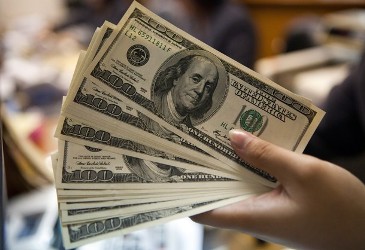US dollar losing ground to Sudanese pound on black market: traders
March 15, 2013 (KHARTOUM) – The US dollar continued to decline against the Sudanese pound (SDG) this week as traders grew more optimistic about the likelihood that the Khartoum-Juba agreement on restarting oil exports will hold this time.

The US dollar has since declined by 75 piastres from its high of 7 SDG, with traders expecting this downward streak to continue as they see a relative increase in supply.
The official exchange rate is around 4.4 SDG.
The head of the Forex bureau Union, Abdul-Hamid Abdul-Bagi Siraj, confirmed that the significant decrease in foreign exchange rates is a result of the deal brokered on oil exports.
Siraj said suppliers are afraid of losing, while buyers are reluctant to buy due to predictions of further declines, with the situation causing an increase in the supply of US dollars.
The decline in the black market dollar rate has also been reflected in the decline of the Saudi Riyal, which is now selling at 1.7 SDG and buying at 1.65 SDG after flirting with 2 SDG over the last few months.
Earlier this week, the market ran out of Euros after it surpassed 9.0 pounds.
Landlocked South Sudan, which seceded from Sudan in July 2011, closed off its 350,000 barrel-per-day output in January of last year in a row with Khartoum over how much it should pay to send the oil through Sudanese pipelines to the Red Sea.
From the start, the loss of the South’s oil left Khartoum scrambling to find alternative sources for hard currency to fund its large volume of imports comprised mainly of food.
Sudan moved to curb luxury imports through prohibition and imposing heavy duties, while also devaluing the currency in attempt to prevent further depletion of foreign exchange reserves.
As per the agreement sealed with Juba, Khartoum will collect a fee for each barrel of oil exported by South Sudan through the north’s pipeline.
South Sudan will also pay around $3 billion in one lump sum to help support Sudan’s ailing finances.
(ST)
